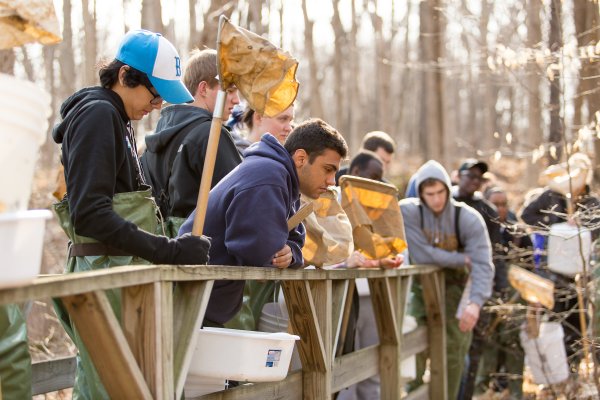Lab and Field Skills
In our curriculum, we begin to give students more and more control over the scientific endeavor until, by the time they are seniors, they are operating as scientists.
– Robert Swanson, Ph.D., Professor of Biology
Valpo’s biology program graduates women and men who can be immediately productive in a professional or academic laboratory setting. In addition, many graduates go on to medical careers in which they also utilize the critical-thinking skills learned in the laboratory or the field. Nearly all biology courses have either laboratory or field components, which are taught by professors or other experienced faculty.
Laboratory Skills
In Valpo’s laboratory classes, like Cell Biology and Comparative Vertebrate Anatomy, students learn techniques including:
- Light microscopy, fluorescence microscopy, and scanning electron microscopy
- Dissection
- Molecular (gene) cloning
- Mammalian cell culture
- Restriction analysis, gel electrophoresis, and gel documentation
- Centrifugation techniques
- Southern and Western blotting
- UV/Vis spectrophotometry
- Enzyme-linked immunosorbent assays (ELISA)
Field Skills
In the department’s many macrobiology classes, students learn the essential skills for field research as well as environmental management:
- Identifying plants, insects, and other life forms
- Using a dichotomous key
- Ecological sampling
- Biomonitoring aquatic and terrestrial habitats
To develop these skills, the biology faculty makes frequent field trips to the Indiana Dunes National Lakeshore, which ranks third of all U.S. National Parks in species diversity, and to other natural areas in Indiana and Michigan.
